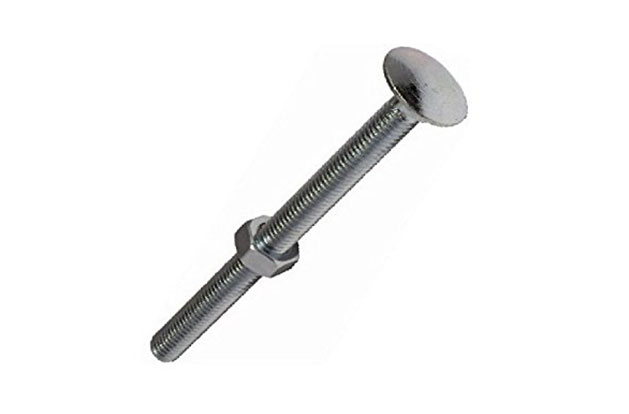
Galvanized coatings are almost always several times thicker than electroplated coatings, so galvanized fasteners greatly outlast zinc plated fasteners.

Zinc plated and galvanized fasteners are made of steel with a sacrificial zinc coating. Even 303 stainless is an excellent choice much of the time. The better grades of stainless, like 316SS, can hold up indefinitely in most environments. So if the type of stainless steel chosen is corrosion resistant to the environment it is placed in, it can last essentially forever. Stainless steel fasteners are made of solid stainless steel, not coated with it. These signs are sold primarily in the United States coast to coast. The sign is convection cooled so the internal air is continually exchanged with the outside air. These fasteners are all used to hold down PCB's that are housed inside a waterproof enclosure. What is the difference in years of exposure between stainless steel and zinc plated steel? We produce outdoor signs and am considering using zinc plated steel fasteners instead of stainless steel for cost savings. But zinc plating is not a good idea in my opinion, and I think it will be short lived. But I fear that you may find the cost unacceptable for anything but airplanes.Īll of the above not withstanding, you didn't mention how the aluminum is corrosion proofed, so the question remains a bit open. You can investigate Ivadizing for vapor deposition of aluminum, or AlumiPlate for electroplating of aluminum. The next best material is aluminum plating or coating, again because the galvanic potential is zero. Nonetheless, cadmium is a cumulative poison, should be reserved for only the most critical applications, and even there is being rapidly phased out. It is so close to aluminum on the galvanic scale that there is no galvanic corrosion, it is corrosion resistant itself, if thick enough, and it has great lubricity. You probably know that, were it not for its toxicity, the ideal fastener material is cadmium plated steel. I am a bit confused by your somewhat offhand reference to stainless steel brackets because these would (theoretically of course) cause the aluminum to galvanically corrode regardless of the fastener material, and being bigger in surface area than the fasteners should probably be a bigger concern. I have seen stainless fasteners used on architecturally anodized aluminum in outdoor exposure without any substantial problems, and suspect that it will be acceptable. Thanks for any help you can provide? Scott Liebert My question is, would zinc plated fasteners be a suitable alternate to the stainless steel fasteners? How would the appearance of the bolts (rust) compare to that of stainless over a period of years in an outdoor environment? How much galvanic corrosion would we see with the zinc plated fasteners as opposed to with the stainless steel? The concern that we have is with the potential for galvanic corrosion due to the fact that we have dissimilar materials in direct contact with each other. In our application, a hex bolt is slid into a channel in the aluminum extrusion, and a the assembly is fastened together with stainless steel brackets. One reason for the questions is because of the higher cost of the stainless fasteners. We decided to switch to all 18-8 stainless steel fasteners for corrosion resistance, but there has been some second guessing as to why we didn't decide to use zinc plated steel fasteners. My company is developing an outdoor product line which is primarily made up of 6063-T5 aluminum extrusions. ↓ Closely related postings, oldest first ↓ What should I choose? robert montesarchio

I"m having a new pool installed and I don"t know if I should have stainless steel screws or regular screws used in my screen enclosure. Plating, anodizing, & finishing Q&As since 1989


 0 kommentar(er)
0 kommentar(er)
